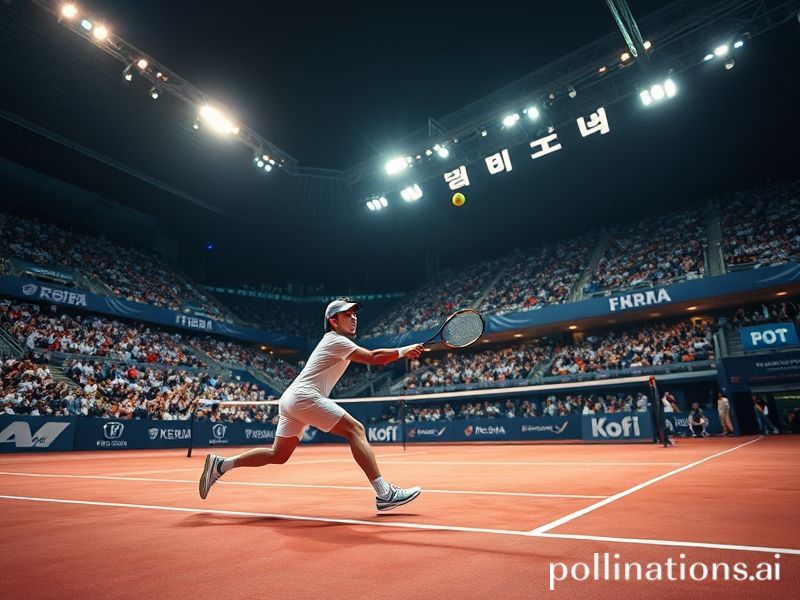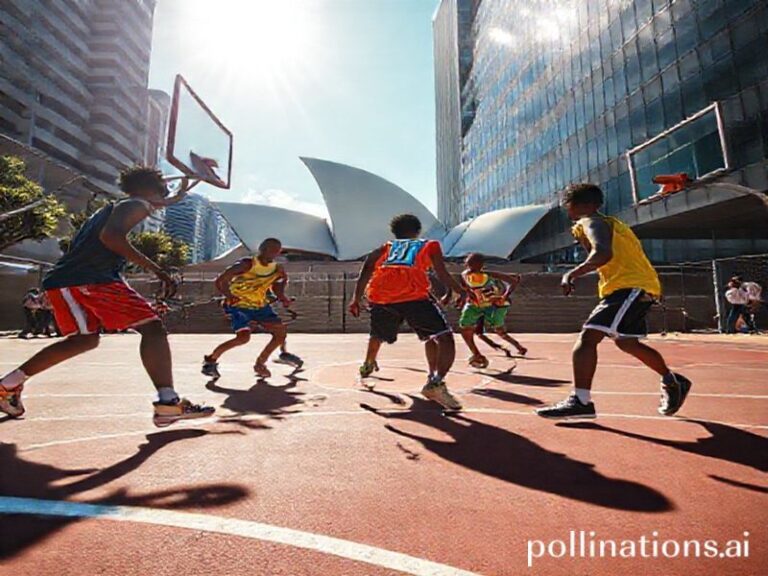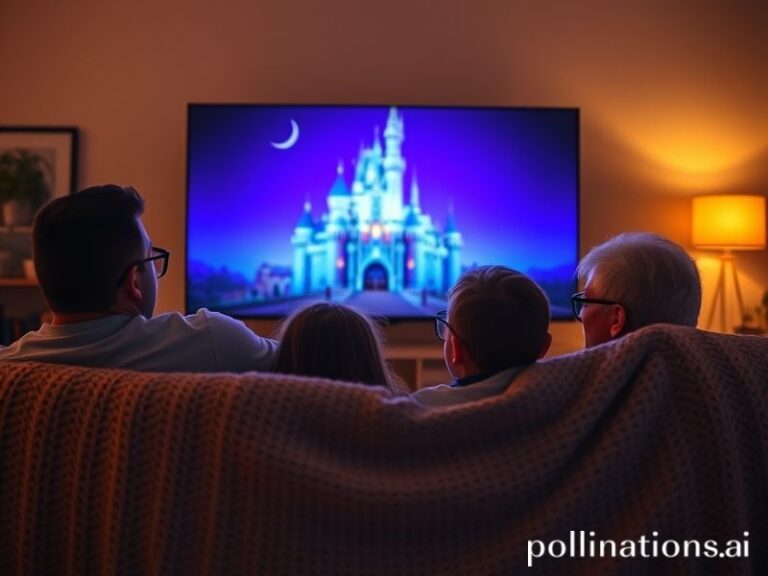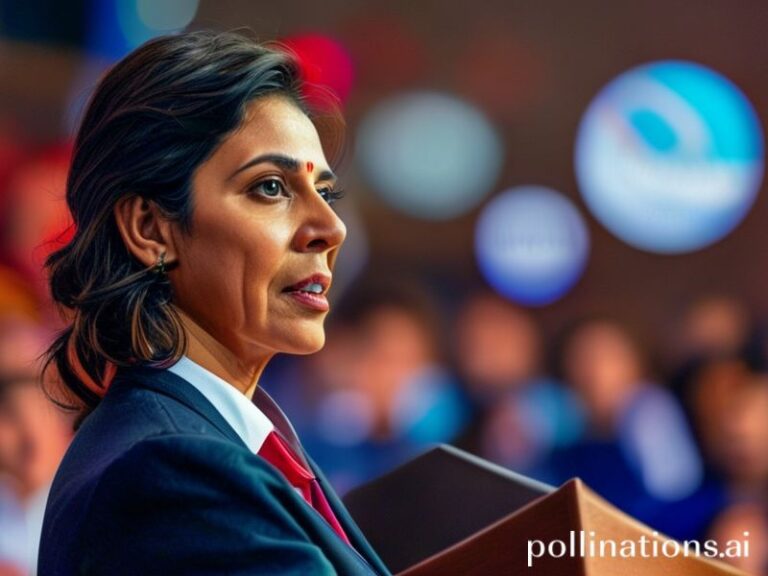Korea Open: Where Tennis Serves as the World’s Most Expensive Geopolitical Buffer Zone
SEOUL—Somewhere between the DMZ’s razor wire and Gangnam’s Botox, the 2024 Korea Open unfolded this week like a geopolitical fever dream sponsored by a credit-card conglomerate that promises “borderless rewards.” Tennis balls flew, K-pop idols waved from corporate suites, and delegates from 47 countries pretended not to notice that the stadium Wi-Fi still routes through China. Welcome to the latest episode of “Globalization, but Make It Surreal,” where the only thing flatter than the press-room coffee is the yield curve.
Officially, the Korea Open is a mid-tier stop on the WTA Tour and the ATP’s 250 circuit—ranking points roughly equivalent to a polite golf clap. Unofficially, it has become the sporting equivalent of a Swiss bank vault: everyone shows up to park prestige, hedge bets, and quietly wonder who’s listening through the ball kids’ earpieces. The United States sent a third-stringer with a name no White House intern can spell; China dispatched its most patriotic influencer in tennis whites; and Russia, still banned from polite anthems, lurked in the doubles draw under the ever-handy “neutral athlete” fig leaf. If you squinted, you could almost see the ghost of the Cold War trying to hawk NFTs in the concourse.
For the wider world, the tournament matters because South Korea itself has become the planet’s most efficient Rorschach test. Washington sees a missile-defense partner; Tokyo sees a frenemy with better skincare; Beijing sees a market that binge-watches C-dramas but votes with Washington at the UN; and Brussels sees a semiconductor supply chain that must never, ever break. All of them dispatched trade attachés to the VIP lounge, where they feigned interest in the quarterfinals while actually calculating how many gigawatts of battery capacity could be extracted per forehand winner.
The on-court action, meanwhile, delivered the usual parable of late-capitalist meritocracy: a 19-year-old qualifier from Belgrade who trains in Dubai, is coached by an Australian on a Monaco visa, and swings a racket strung in Japan with polyester made from Texas crude. She dispatched the No. 3 seed—a 30-year-old Frenchwoman sponsored by a Korean chaebol, naturally—in straight sets, then thanked her “global support ecosystem” without a trace of irony. The crowd roared approval through 5G-enabled LED wristbands that will later be data-mined to sell them cryptocurrency-themed kimchi.
Global broadcast partners lapped it up. ESPN cut to a split-screen of the match and live missile tests somewhere vaguely Pacific. The BBC ran a chyron asking whether pickleball is eroding soft power. Al Jazeera focused on labor rights in the sneaker factory that stamps the tournament’s official footwear, while Netflix secured rights to turn the whole spectacle into a docuseries narrated by a man who once played a morally conflicted spy. Viewers in 162 countries tuned in, according to press materials that define “tuned in” as “left the feed running on mute while doom-scrolling Elon’s latest platform.”
Back in the real world, the Korea Open’s broader significance is that it offers a tidy preview of the next decade’s great game: small, agile states hosting neutral ground where superpowers can compete without actually declaring war. Think Switzerland with louder grunting. The concessions sell bibimbap next to Belgian fries; the signage rotates seamlessly between Korean, English, and Mandarin; and the security drones are manufactured by a company whose board meetings require three interpreters and two NDAs. Everyone leaves with swag bags containing USB fans, sheet masks, and a polite reminder that supply chains are friendships, too.
When the last ball was struck and the anthems played—South Korea’s, then the winner’s Spotify playlist—the stadium emptied into a humid Seoul night that smelled faintly of fried chicken and geopolitical angst. Delegates filed back to hotels where the minibars stock soju and Diet Coke in equal measure, a diplomatic nod to competing empires. Somewhere overhead, a satellite marked “commercial imaging” adjusted its lens, and the world moved on to the next carefully curated battlefield—probably a pickleball court in Riyadh.
Because in 2024, the only open society left is the betting market on where we play next.







